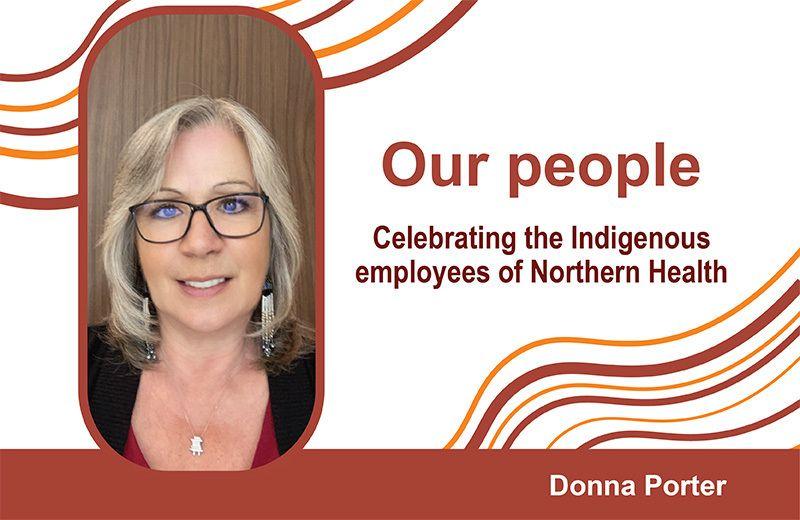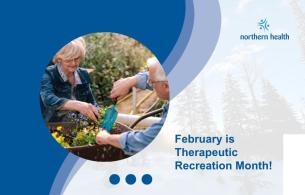June is Indigenous History Month. This is a time for all Canadians – Indigenous, non-Indigenous, and newcomers – to reflect on and celebrate the history, heritage, and diversity of First Nations, Inuit, and Métis Peoples in Canada.
At Northern Health, we want to celebrate our Indigenous colleagues who contribute in countless ways to help us uphold our commitment to building a health system that honours diversity and delivers culturally safe services by providing respectful and inclusive programs and initiatives across Northern BC.
Whether they are an Indigenous Patient Liaison, a Nurse Practitioner, or the VP of Indigenous Health, the Indigenous employees of Northern Health are our friends and neighbours, and we want to get to know them better! To that end, we’ll be sharing interviews and conversations with Indigenous workers at Northern Health about their roles and experiences in their professions during the month of June.
Donna Porter: Lead, Cultural Safety and Anti-Indigenous Racism Education, Prince George, BC
Why did you want to work in health care?
I love to be helping people. Even as a little child I was always the one with the bandage. I come from a long history of healers, midwives, and nurses, and it is a part of who I naturally am.
What means the most to you about your job?
The people I work with are amazing. I also love helping people, supporting people, and learning from others by working in a supportive team. I get a great deal of inspiration from others.
Who is your inspiration in health care?
All the Indigenous nurses who have come before me and what they sacrificed to do this work. My aunt and my grandma who were Indigenous healers and midwives inspire me, and my aunties who were nurses before me.
What inspires you in health care?
What inspires me is that finally there is real recognition of harms done to Indigenous peoples in the health system, and that there is a sincere desire to make it better. The fact that I get to be part of making those positive changes encourages me every day.
What was a significant moment for you in your career?
Getting the opportunity to work in support of Indigenous health and knowing I had another opportunity to give back, knowing all the sacrifices my ancestors struggled through so I could get this opportunity.
How did you get where you are today?
I credit my mom and all her teachings she shared with me growing up. She was a great leader. She brought seven children into this world and all she wanted was for us was to love each other, and to love and believe in ourselves. She used to say things like “take care of your family” and “charity begins at home.” Or “be kind to others you do not know their struggles until you have walked a mile in their moccasins.” My mom always encouraged me and always believed in me.
I started as a care aide then became a registered nurse, and much later in my career I was able to afford to put myself back through university and get a master’s degree. It took many, many hours and years of challenging work and sacrifice, and being always willing to try new things to push myself beyond what I thought I was even capable of and just not give up. Every time I was told I could not do something I tried even harder and would do it. You must be willing to learn. Do not get over-confident because you might miss an opportunity. Life is a learning journey.
What was your best day at work?
There have been so many that come to my mind when you have been a nurse for 40 years! It’s hard to pick one best day.
What does it mean to you to be an Indigenous person in health care?
It is a wonderful opportunity. I can represent my own family and ancestors, and advocate for my family and the sacrifices of my ancestors. I just want to make sure all Indigenous people are treated with the respect and dignity they deserve. If I can make it better for even one other Indigenous person, the challenging work has been worth it. If I can encourage even one Indigenous youth to believe in themselves and work in health care, then we can make the system better. That excites me because, as Indigenous people, we are very resilient.














Comments